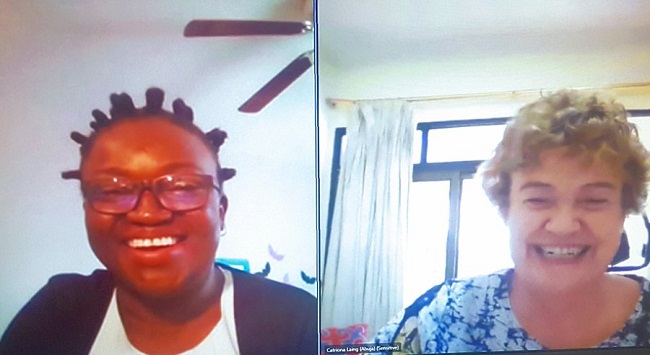The British High Commissioner, Ms. Catriona Laing, has commended Nigeria’s Ms. Iroro Tanshi for emerging winner of the 2021 Whitley Awards, which celebrates champions of grassroots wildlife conservation.

She gave her congratulatory message during a virtual meeting with the winner on Wednesday, July 28, 2021.
Iroro is one of six winners who are proven to be grassroots conservation leaders across the Global South. She won the award for her inspiring work to save the short-tailed roundleaf bat from extinction, after discovering the first and only population in Nigeria.
The Whitley Awards, hosted by the Whitley Fund for Nature Fund annually and often referred to as “Green Oscars”, seeks to recognise outstanding contributions to wildlife conservation with a focus on Africa, Asia and Latin America.
The Award brings international attention to the work of deserving individuals committed to precipitating long-lasting conservation benefits on the ground, with the support of local communities.
Speaking during the meeting, Laing commended Iroro on her work to save bats and assured her of the British High Commission’s support for conservationists in Nigeria.
The High Commissioner said: “Nature is a key area of focus for COP26, which will be held in Glasgow in November 2021. The UK Government has been working with leaders from around the world to drive ambition and action for biodiversity conservation and sustainable land use.”
In her response, Iroro stated that she became interested in bats after attending a course in Uganda in 2010 and getting involved in field studies that expanded her knowledge of bats.
She said: “There were a number of superstitions around bats and Nigerians often lack awareness of the fact that bats are very important for farming and food security. My team and I are excited to have discovered a unique and rare species of bats – the short-tailed roundleaf bat – while working in Cross River, Nigeria.
On next steps, Iroro plans to expand her work from the Afi Mountain Wildlife Sanctuary and Cross River National Park to the Mbe Mountains, locating new caves and tracking bats to better understand their distribution and continue research on roosting caves.
“With the support received from the WFN, I will put in place early warning systems and fire-fighting forces in local communities, to eliminate wildfires that destroy forest habitats, and also raise awareness on bat conservation and the need for protection with the aim of reducing fruit bat hunting by 50%. We will continue to work with communities and the next generation of conservationists with capacity building and training to ensure long-term success in Nigeria,” she said.
